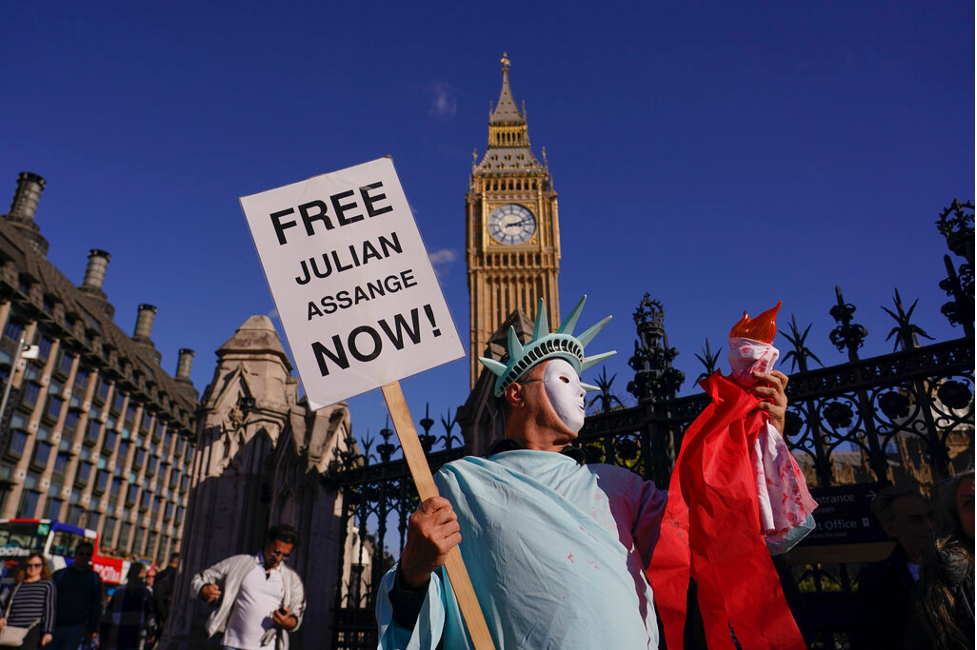
On November 28, 2022, five of the West’s most influential newspapers published an open letter arguing against the continued prosecution of WikiLeaks’ Julian Assange by the U.S. government. The editors of America’s New York Times, Britain’s Guardian, France’s Le Monde, Spain’s El Pais and Germany’s Der Spiegel argued that continuing to persecute Australian-born Assange for publishing government secrets challenges the concept of a free press.
While opposition to Assange’s unconstitutional prosecution is hardly new, especially on the political left, the denunciation of the U.S. government’s relentless vendetta against the WikiLeaks founder by the print media establishment is a critical step in demonstrating to those in power what many of us already understand; legal punishments for publishing government secrets is a direct assault on the principle of free speech.
In 2010, WikiLeaks obtained thousands of secret government cables from former U.S. intelligence analyst Chelsea Manning and published them in what became known as “Cablegate.” Assange worked with The New York Times, The Guardian, Le Monde, El Pais and Der Spiegel to expose the public to many embarrassing U.S. government secrets, including the now infamous helicopter gunship video where American military personnel killed 12 innocent civilians in Iraq in 2007, including two Reuters reporters.
While President Obama controversially prosecuted Chelsea Manning, his administration steered clear of bringing charges against Assange, citing the “New York Times problem.” In essence, the administration could not find a legal route to prosecute Assange without implicating newspapers because there was no identifiable difference between Assange’s actions and those of the New York Times, The Guardian, etc.
Assange then made the brave but potentially fatal decision to publish roughly 20,000 leaked emails allegedly given to him by Russian hackers from the DNC servers during the 2016 Democratic Party primary elections. The leaked emails from powerful party officials exposed the DNC’s clear bias against Bernie Sanders in favor of Hillary Clinton, despite the party leadership swearing neutrality. DNC chairwoman Debbie Wasserman-Schultz (D-FL) resigned from her party position, and Assange had alienated the Democratic Party establishment.
The Trump administration, filled with many of the neo-conservatives from the Bush administration who were in part responsible for many of the war crimes and embarrassing government secrets exposed during Cablegate, filed charges against Assange in 2017. The Trump administration disturbingly charged Assange under the repressive wartime Espionage Act of 1917 for searching for and publishing “classified” information. Assange, being granted honorary citizenship by Ecuador, hid in the Ecuadorian embassy in London to avoid U.S. prosecutors. He was eventually dragged out and put into a British jail. U.K. courts initially blocked extradition to the United States by citing concerns for Assange’s mental health, but the British Home Secretary approved it this June. Assange and his lawyers have appealed the extradition and he will remain in London until his hearing next year.
The Biden administration has continued this prosecution. Assange’s role in exposing the DNC is a possible reason that the Biden administration has refused to drop the charges and has continued the prosecution that the Obama administration felt wasn’t warranted. Assange is out of powerful allies, as he is hated by both parties in Washington.
Julian Assange has faced sexual assault allegations in Sweden, and some suspect his decision to hide in the Ecuadorian embassy was more related to this case. The prospect that these allegations are made-up smears, given that Assange’s enemies are some of the most powerful people on earth, is quite probable. Nonetheless, these cases should not be dismissed and a proper trial based solely on sexual assault is fair and warranted.
It is important that as defenders of the first amendment, we do not allow the questionable personal life of Assange to get in the way of our principled stance that it is fundamentally wrong for him and other whistleblowers to face criminal charges for publishing government secrets. We can promote a thorough investigation into his sexual assault allegations and defend his work on the grounds of public interest, as these two courses of action are not mutually exclusive. While Assange’s enemies relentlessly attempt to conflate the two cases in order to discredit the WikiLeaks founder, we must come to terms with the reality that Assange could potentially be guilty of sex crimes while also being central to the free-speech legal battle of our generation.
The print media, by finally calling out the continued prosecution, has bolstered its own reputation. Assange’s case must be supported by journalists as winning his case against the U.S. government is critical for journalists everywhere to perform two of their most important duties: inform the public and hold those in power accountable.
